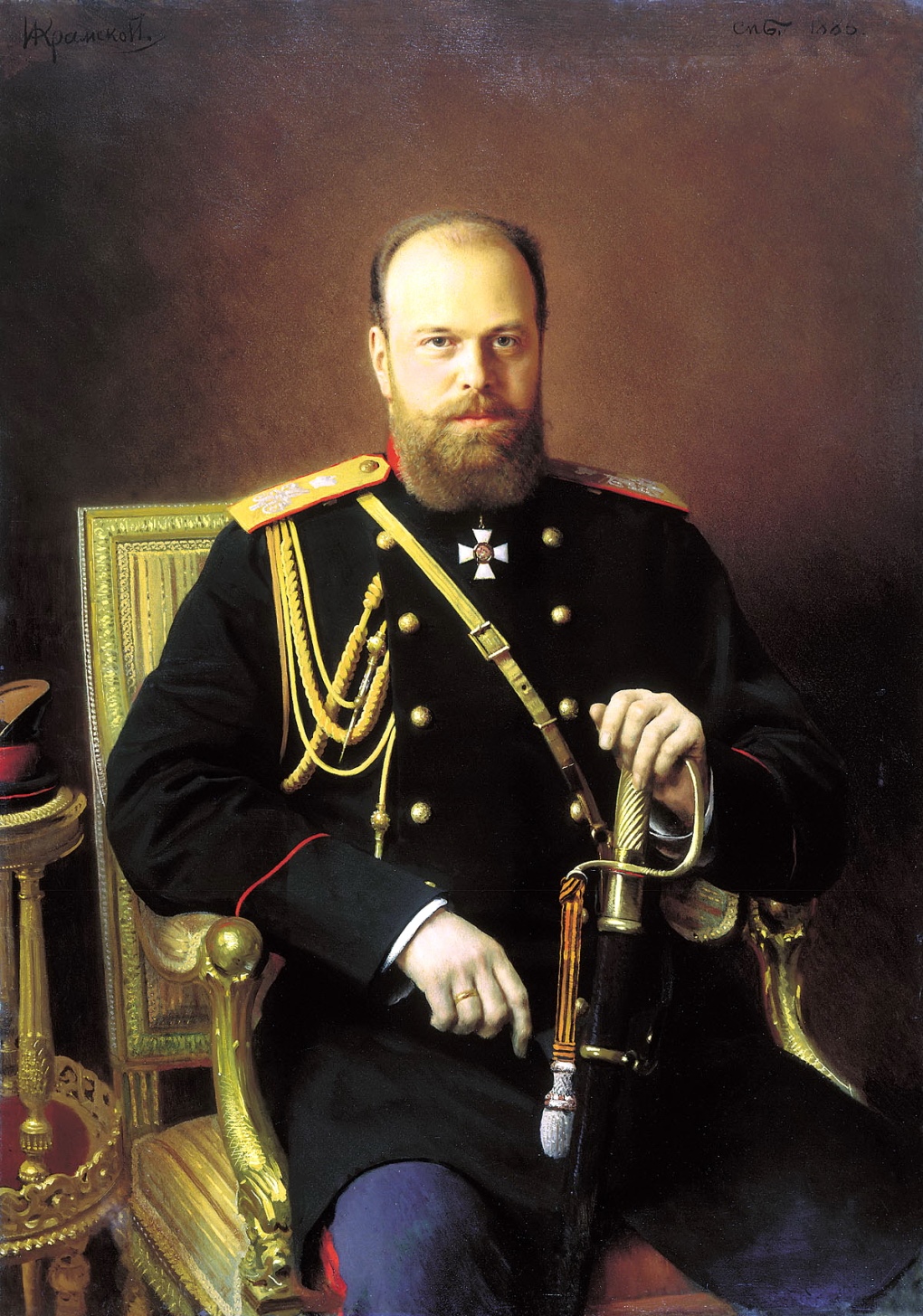Aleksandr III (1845 - 1894)

Aleksandr III
Alexandr III Aleksandrovich (Russian: Александр III, Александр Александрович) was Emperor of All Russia, Tsar of Poland and Grand Duke of Finland of the Romanov dynasty.
Son of Alexandr II and father of the last Emperor of the Russian Empire Nicholas II. He ascended the throne on March 13, 1881 after the murder of his father, Alexandr II, by the People's Revolutionaries, and ruled until November 1, 1894.
Alexandr received the traditional military engineering education for grand dukes, but the greatest influence on the tsesarevich was the teacher of law, Konstantin Pobedonostsev. His ideals of government were radically different from his father's: he was based on the ideas of patriarchal-fatherly autocratic rule, the planting of religious values in society, the strengthening of the class structure, national and indigenous social development.
Already on April 29, 1881 Alexandr III issued a manifesto "On the inviolability of autocracy" and launched a series of reforms, which were aimed at a partial curtailment of the liberal initiatives of the father-reformer. The tsar's domestic policy was characterized by the strengthening of the central government's control over all spheres of the state's life. During the reign of Alexandr III the construction of the Cathedral of Christ the Savior in Moscow (1883) was completed, many new monasteries and temples were built. Also in this period there was economic growth, which was largely due to the policy of increased patronage of domestic industry. The country became the world's largest exporter of agricultural products, rearmed the army and navy.
The most important foreign policy decision of Alexandr III was the alliance with France, which was concluded in 1891-1893.
Alexander III went down in history as the Tsar-Peacemaker - during his reign Russia did not participate in any serious military and political conflict of that time. The only significant battle - the capture of Kushka - occurred in 1885, after which the annexation of Central Asia to Russia was completed.
In general, Alexanr III was characterized by good health, was pious, frugal, modest, spent his leisure time in a narrow family and friends circle. He was interested in music, painting, history. He collected an extensive collection of paintings, decorative and applied arts, sculptures, which after his death was transferred to the Russian Museum founded by Emperor Nicholas II in memory of his father. On November 1, 1894, the emperor died in Livadia (Crimea) from the effects of nephritis.
| Date and place of birt: | 10 march 1845, St. Petersburg, Russian Empire |
|---|---|
| Date and place of death: | 1 november 1894, Livadia, Russian Empire |
| Period of activity: | XIX century |
| Specialization: | Monarch |